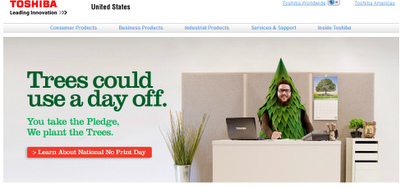The respected paper-industry publisher came out with its new list today, and I wasn't on it. I had to make way for the likes of Greece ("Tell me more, tell me more"), Starbucks, the iPad3, and a bunch of people who actually work in the pulp and paper industry. The good news is that the founder of TwoSides made the list, while Toshiba did not.
RISI had previously honored me primarily for Dead Tree Edition's coverage of the black liquor tax credits, a boondoggle that allowed U.S. pulp manufacturers to hijack a federal biofuel program.
But, as I pointed out last year in objecting to my repeat appearance on the list, my many articles on the subject (51 and counting) have actually changed nothing. The pulp companies collected their billions of dollars from the original black liquor tax credits, are still cashing in on Son of Black Liquor, and still haven't figured out how whether the income is taxable.
Related articles:
- Rupert, Weiner and Cardboard Animals: 5 Who Should Be Ahead of Me on RISI’s Top 50 Power List
- Dead Tree Edition Tops Twitter and the World Cup
- Not Dead Yet: Son of Black Liquor Has Not Been Vanquished, Contrary to News Reports
- Who in the World Is D. Eadward Tree?
- 1/1: Interview with D. Eadward Tree, Chief Arborist at Dead Tree Edition

